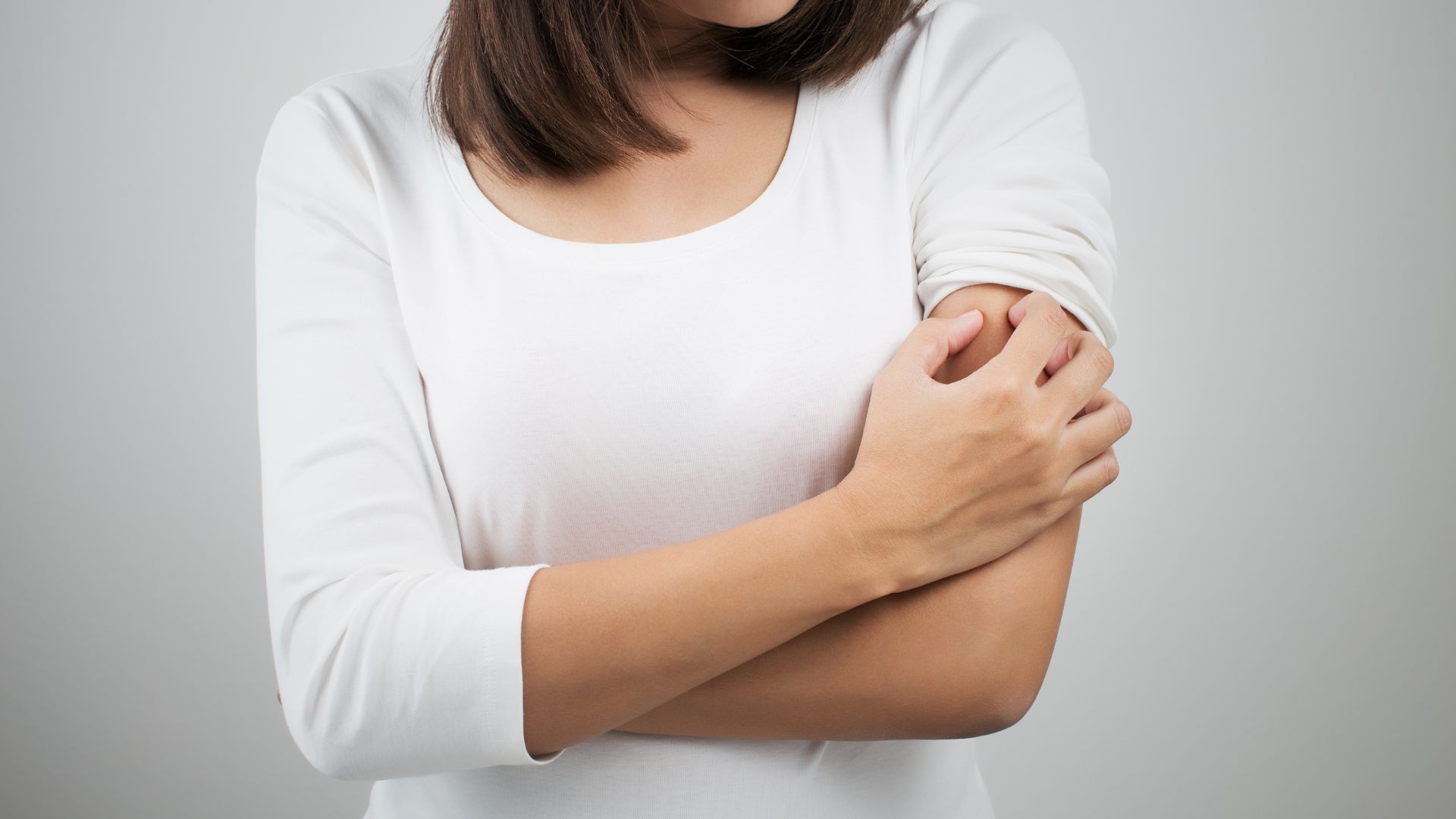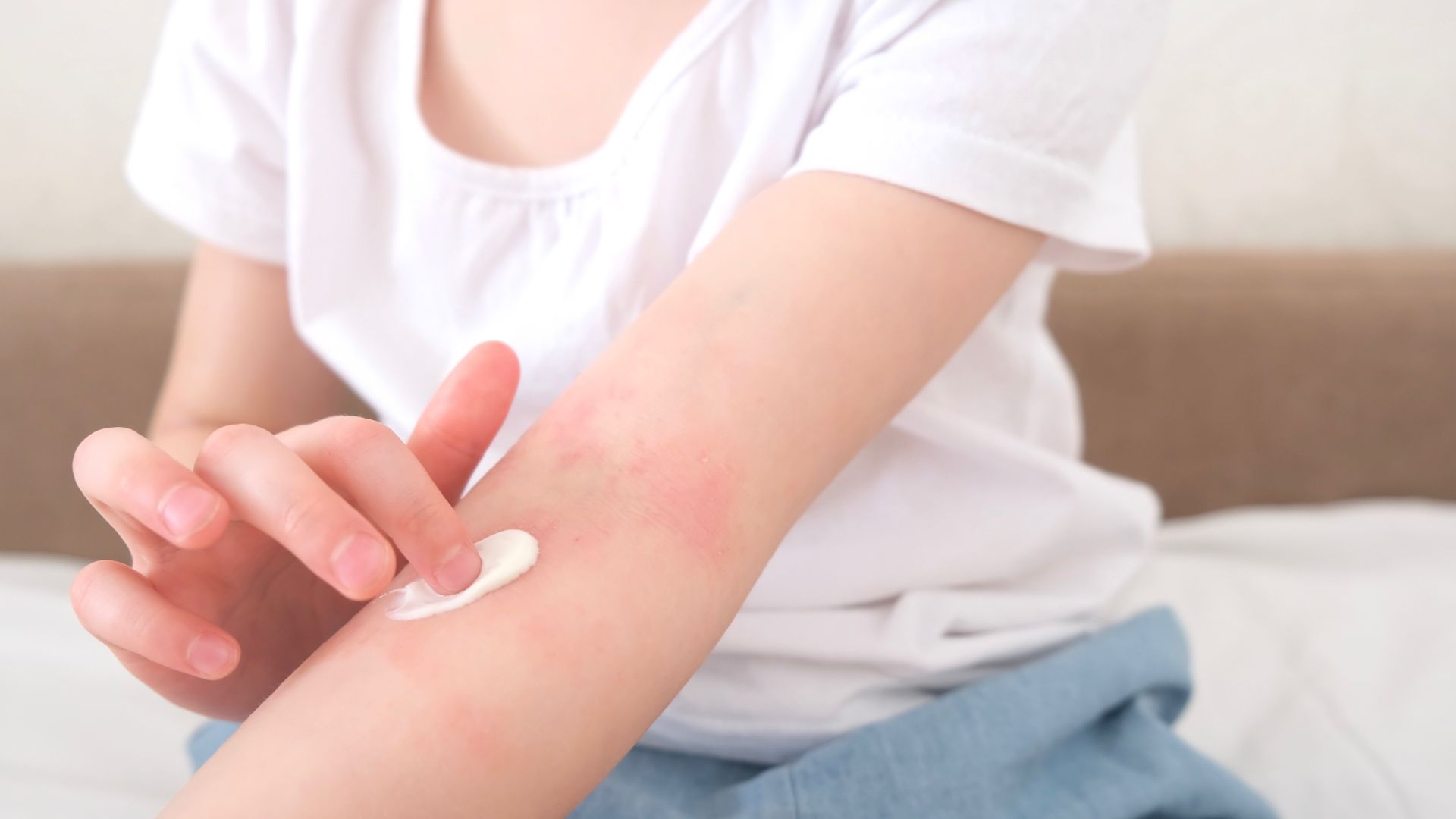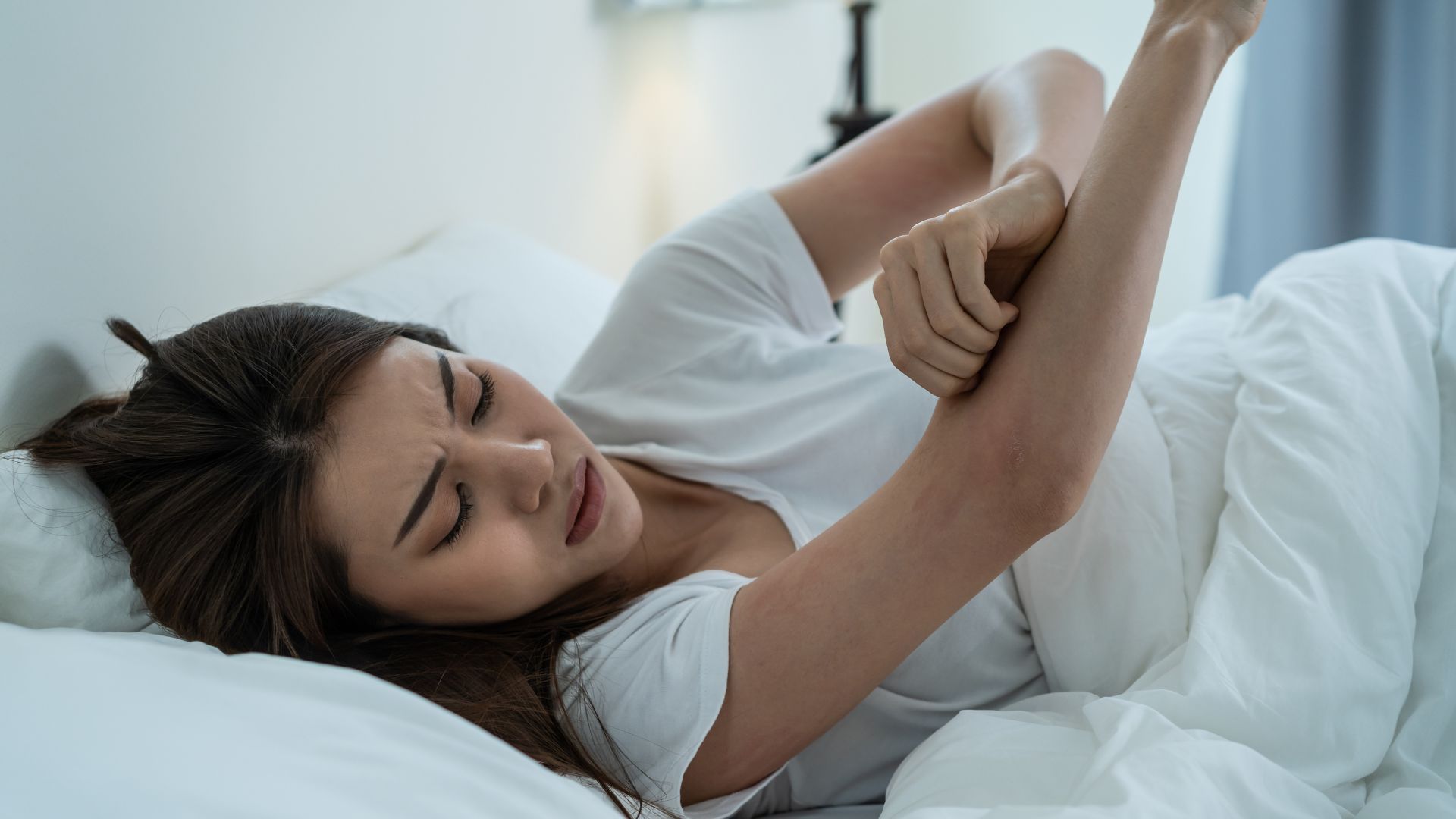How to get rid of eczema
A prevalent inflammatory skin disorder is called eczema. It can be uncomfortable and varies in severity. Let's learn about the types of eczema and how to cure it.
October 29 2022 | Vidhi HamirwasiaHow to get rid of eczema
Eczema is a skin condition that results in inflammatory, itchy, cracked and rough patches on the skin. Some varieties can generate blisters too. In the United States, 31.6 million people suffer from various types and stages of eczema.
Since atopic dermatitis is the most typical kind, the term eczema is frequently used to describe it. Atopic refers to a group of immune system-related disorders, such as atopic dermatitis and seasonal allergies. Some dietary snacks, such as dry fruits and dairy, might aggravate eczema symptoms. External stressors can include smoke, pollen, detergents, and fragrances.
Types of eczema

We all already know atopic dermatitis is the most common type of eczema. Other types of Eczema include -
Allergic contact dermatitis is a skin rash that develops after coming into contact with an allergen or substance that the immune system identifies as foreign.
Dyshidrotic eczema indicates skin irritation on the palms and soles of the feet. It is distinguished by blisters.
Neurodermatitis is a condition that causes scaly skin areas on the lower legs, forearms, and head. It results from a localized irritation, such as one brought on by an insect bite.
Discoid eczema is sometimes called nummular eczema, and it appears as inflammatory skin that is itchy, crusty, and scaly.
Stasis dermatitis describes skin irritation on the lower leg. It is generally associated with circulation issues.
Symptoms and causes
The symptoms of eczema can differ depending on a person's age and the severity of the ailment, as well as by individual medical history. Those with this condition frequently go through phases where their symptoms get worse, followed by phases where they get better or vanish
In most cases, symptoms of eczema are not severe. Some of the general symptoms include Itching, dry, scaly skin, open, flecked or shedding tears sores. Individuals with serious eczema may require intensive treatment to get better. Skin infections can also occur from continuous scratching and rubbing.
Researchers are unaware of the exact cause of eczema. Although many doctors believe it is caused by a combination of environmental and genetic factors. If a parent has eczema or any atopic disorder, their child is more likely to have it as well. The risk is increased if either or both parents suffer from an atopic disorder.
The signs of eczema may also be aggravated by certain environmental variables. These consist of allergens, microbes, irritants, changing weather, certain foods, stress, and hormones.
Treatment for eczema

Eczema presently has no known treatment. Healing the afflicted skin and avoiding symptom flare-ups are the goals of treatment for the condition. A treatment plan will be recommended by a doctor depending on a patient's age, symptoms, and present health. Eczema may fade over time for some people. However, for some people, it is a lifelong illness.
Home remedy
There are numerous health precautions and techniques one can try out to alleviate the symptoms of Eczema. Some of them include taking lukewarm baths, regular moisturizing, wearing soft fabrics, and using a humidifier in dry and cold weather conditions. It also inculcates gently patting the skin with a towel, watching the food that goes in, and avoiding individual triggers.
Medication for eczema

Lotions & ointments of Topical corticosteroids: They are anti-inflammatory drugs that relieve the major signs of eczema including swelling and itching. It can be put directly on the skin. However, prescription drugs may only be advantageous for some persons
Oral medicines: If conventional treatments are ineffective, a physician may prescribe oral drugs such as immunosuppressants or systemic corticosteroids. These can be taken orally or as injections. In addition, it's crucial to remember that the symptoms can get worse after stopping these medications if a person isn't taking another medicine for their illness
Antibiotics: doctors usually prescribe antibiotics if eczema coexists with a bacterial skin infection
Antihistamines: They promote drowsiness, and can decrease the risk of overnight scratching
Although the condition is not yet treatable, everyone should visit a doctor to create a personalized treatment plan. Even when a skin surface has recovered, it is critical to maintain care for it because it can easily become itchy again.
Disclaimer : Beem Wellness provides general education on health and wellness. The content on this blog, website or any linked material is not intended and should not be considered, or used as a substitute for, medical advice, diagnosis or treatment. If you or any other person has a medical concern, you should immediately consult your health care provider.
In case of medical emergencies, please call 911.

